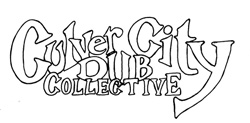
Anyone else remember all the cruddy bands nationwide that tried to play reggae-influenced music in the 90s? Well, I do. Thankfully, the Culver City Dub Collective, a group whose members were in some of those bands, is doing its best to not have us relive that era.
The group’s 2007 debut CD Dos is unique, creative, well-produced, and played by a handful of talented musicians. There is definitely some reggae music here that is slick, tasteful, and very “dub” (so, plenty of heavy echo and reverb, thick bass lines, and more space for one or two isolated sounds to resonate), but the southern California group’s name is misleading because they don’t just play dub reggae. The Culver City Dub Collective mixes Afro-Cuban rhythms, jazz, lounge, and folk with its reggae sounds; which is obviously not a new idea in music, but this group mixes its genres with skill and flair.
“No More My Love” is a straight-up Brazilian, bossa nova-inspired track along the lines of “Girl From Ipanema” and Jack Johnson’s surf-folk vocals on “Crying Shame” make the song feel suitable for a beach blanket party circa 2007. “Eloise (Baghdad mix)” pairs Middle Eastern-sounding chord progressions (think gypsy music) with a bouncy, reggae- and hip-hop-inspired drum beat while “Waltz for Tomahawk” mixes lofty, John Coltrane-inspired saxophone riffs with enough dark undertones and atmospheric horn accents to make it perfect for a Noir film score.
It’s no surprise The Collective has diverse sounds; it has a vast lineup of guest musicians, not all of which have a history of playing reggae. Ben Harper, Beastie Boys keyboardist Money Mark, original Jane’s Addiction bass player Eric Avery, and Jump With Joey leader Joey Altruda all sit in. This roundup of mostly Southern Californian musicians are not just having fun with a genre, they’re contributing new ideas to it.












